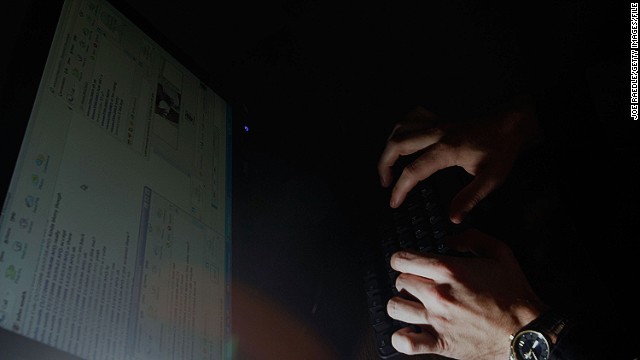
(CNN) — For many victims, California’s new “revenge porn” law doesn’t go far enough.
Revenge porn, also called cyber revenge, is the act of posting sexual photos of an ex-lover online for vengeance. The photos were typically exchanged consensually over the course of a relationship and meant only for the other person.
There are websites dedicated to posting and making money off of these types of shots, which are primarily of women.
The new California law, which was signed into law on Tuesday by Gov. Jerry Brown, is only the second revenge porn-specific piece of legislation in the United States. Under the law, people convicted of distributing sexual images of exes face six months of jail time and a $1,000 fine.
Critics say the law has some glaring loopholes. It only applies when the person accused of spreading the images online is also the photographer. It does not cover photos a person takes of themselves and shares with a lover, say during a sexting session.
Up to 80% of revenge porn victims had taken the photos of themselves, according to a recent survey by the Cyber Civil Rights Initiative. CCRI is a group founded by revenge porn victims and activists to push for legal reform in the United States. That means the vast majority of revenge porn cases would not qualify under this law.
“I definitely don’t think this bill goes far enough, though it is a step in the right direction,” said CCRI’s Holly Jacobs, who became a prominent anti-revenge porn activist after she was a victim herself. In Jacobs’ case, most of her photos posted online were self-shots but some were taken by her ex.
“We would only have been able to follow through with the charges if we linked his IP address to the pictures that he took of me, not those that I took of myself,” said Jacobs.
Mary Anne Franks, a law professor at Miami Law School who is on the board at CCRI, said one of the possible reasons the law did not include self-shots is that the distinction was required so people who sent unsolicited nude photos of themselves were not covered. However, the law does specifically state that photos be taken “under circumstances where the parties agree or understand that the image shall remain private.”
“I think we are really looking at a ‘blame the victim’ mentality here,” said Franks, meaning people who take the photos of themselves were “asking for it.”
“It’s disturbing that the drafters apparently think that some victims of nonconsensual pornography are not worth protecting,” said Franks.
Another issue is that there could be difficulty enforcing the law even in cases that do qualify. The law applies to people who post photos to “harass or annoy” and the perpetrators must have “intent to cause serious emotional distress.” That could exclude people who post these types of images only for financial gain or other reasons like bragging rights. The sites that make money off of submitted revenge porn might be able to avoid prosecution by claiming they did not know the victims and therefore couldn’t have intended any harm.
“Until now, there was no tool for law enforcement to protect victims,” California state Sen. Anthony Cannella said in a statement. Cannella was one of the main authors of the new law. “Too many have had their lives upended because of an action of another that they trusted.”
Cannella’s office did not immediately respond to a request for comment regarding criticisms of the law.
Previously, victims of revenge porn had limited recourse when photos taken with consent were posted online. A person could sue the ex who uploaded the images or the site hosting them for invasion of privacy, but it didn’t constitute harassment under California state laws. Victims would have had to pay for a costly civil suit.
California is only the second state to have a law that addresses revenge porn. New Jersey has had a related law since 2003 that makes it a felony to post secretly recorded videos or photos online.
Now other states are considering their own revenge porn laws, including New York and Wisconsin. Franks has been working with both states on early drafts of their laws, and she says that so far it looks like both avoid what she considers the weaknesses of the California law and include First Amendment protections.
Activists would also like to see a federal law address revenge porn.
Early on, the ACLU voiced concerns about the California law’s potentially negative impact on free speech, for example, if someone wanted to share a photo that had political implications or if a photo or video contained evidence of a crime.
Florida was considering a revenge porn law but scrapped it following First Amendment concerns.
The California bill contains an urgency clause, meaning it will go into effect immediately. The first few cases will show how effective the new legislation is in curbing revenge porn. Since it’s nearly impossible to scrub an image from the Internet once it has gone viral, the best possible outcome is that the law discourages people from seeking this type of revenge in the first place.
New California ‘revenge porn’ law may miss some victims - CNN
https://news.google.com/news/feeds?hl=en&gl=us&authuser=0&q=revenge+porn&um=1&ie=UTF-8&output=rss
revenge porn - Google News
Social tagging: ccri > holly jacobs > Revenge Porn





Trackbacks/Pingbacks